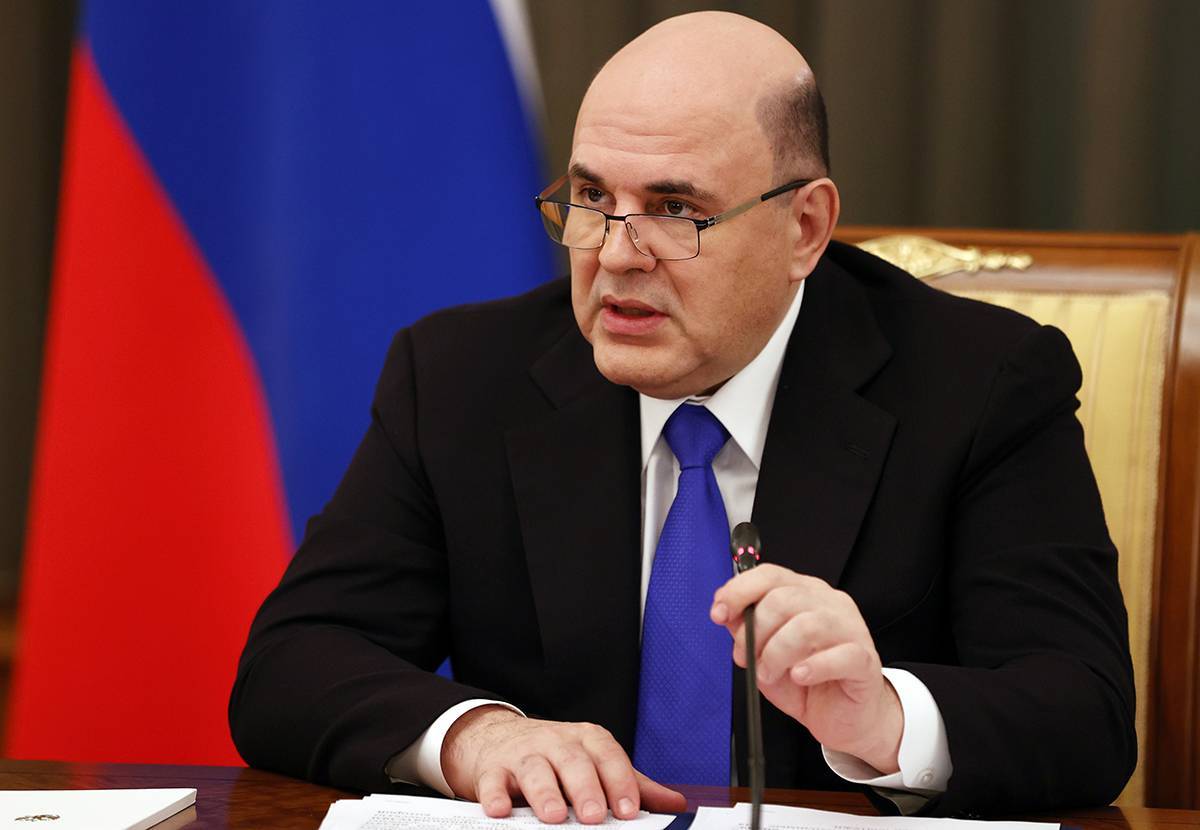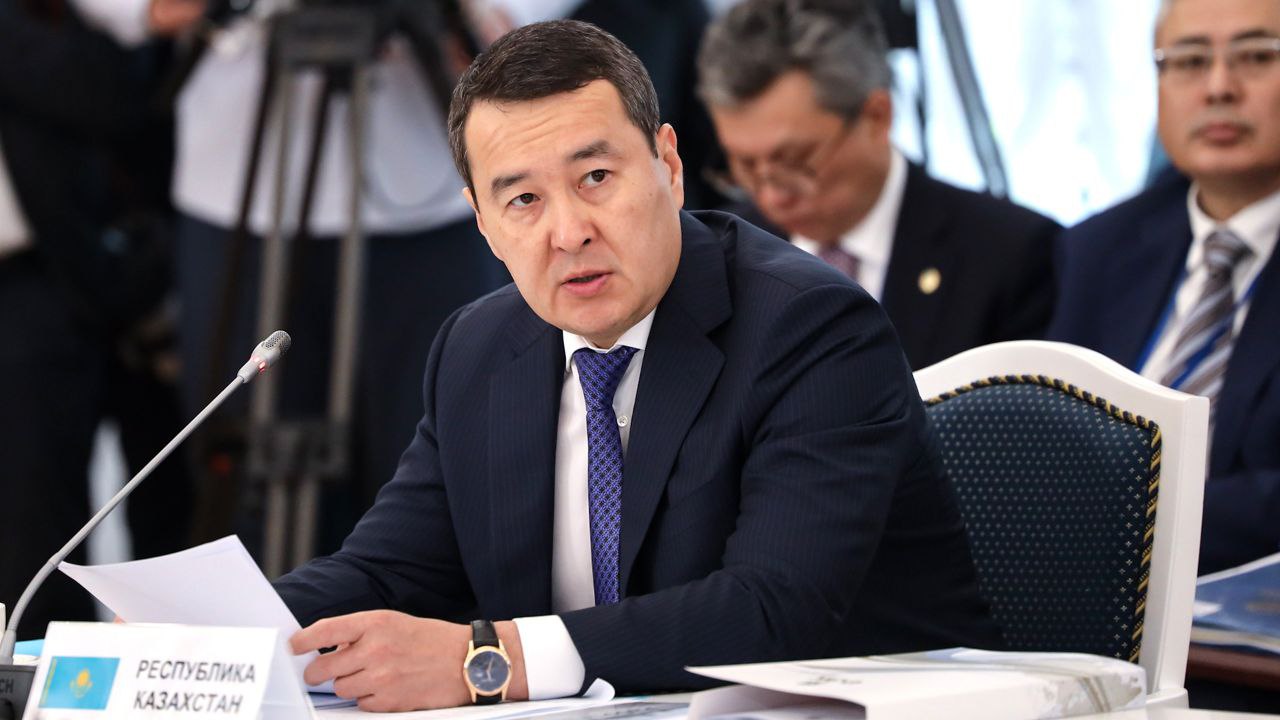Digital Almaty 2023, EAEU Prime Ministers Meet
 Photo: Bluescreen.kz
Photo: Bluescreen.kz
The Way of The Future.
Kazakhstan held the “2023 Digital Almaty” on February 2-3. A variety of different technology was showcased during the event. The location and the host are more than fitting. Kazakhstan has moved up the ranks in the United Nations e-government ranking: Astana has leapt from 39th to 28th place since 2018. Amongst CIS countries, Kazakhstan enjoys the top position in this regard.
Such statistics fall in line with the Kazakh authorities’ ambitions to become a competitive government via digitalization. Astana has also set forth plans to become an IT hub in Eurasia’s centre and increase the sale of IT exports by $500 million come 2025. Digital technology’s share in the Kazakhstani economy should presumably increase by more than two times by 2029.
The event also ran parallel to the Eurasian Intergovernmental Council Meeting. The Russian Prime Minister, Mikhail Vladimirovich Mishustin, used his platform here to speak in a way that seems to have become the norm for Russian authorities.

Mishustin forewarned his colleagues of being “too reliant” on western technology. He also claimed that there is a Russian equivalent for already about 85% of foreign software. This statement seems peculiar considering Russia’s importing of western technology from other countries. The statement's peculiarity goes in tandem with Yandex’s recent announcement about the potential slowing of its development of projects for drones and artificial intelligence due to the lack of Nvidia chips.
On the other hand, Mishustin's Kazakh counterpart, Alikhan Smailov, touched base on improving communication services, developing cross-border electronic document management, strengthening integration, and creating joint projects within the EAEU’s territories. He also put forth the proposal to launch a Digital Competence Centre in Almaty. The centre is supposed to become a platform for designing and executing the EAEU’s digital initiatives.

Considering Kazakhstan’s current standing in digitalization amongst Moscow’s traditional allies, Russia is more than interested in maintaining ties with the nation that it shares a 7,644-kilometre-long border. Indeed, a staggering amount of re-exported technologies have found their way from Kazakhstan to Russia, though Kazakhstan has made it clear that it will not aid in circumventing sanctions.
Prime Ministers in Prime Time
Aside from technology, The Prime Ministers of the Eurasian Economic Union (EAEU) gathered for The Eurasian Intergovernmental Council meeting to speak about more formal matters. Contrary to logic, Russia’s traditional allies seem to be keeping ties with Moscow. Moscow has in fact kept its top country-to-country trading positions with both of the Central Asian region’s leaders, Tashkent and Astana.
Kazakhstan’s Prime Minister, Alikhan Smailov, seemed to solidify this notion with his statement about how Russia and Kazakhstan’s economic cooperation and mutual trade are on the rise. He backed this with a claim that within the framework of industrial cooperation, 26 joint projects worth $1 billion have been implemented and others worth $23 billion are being developed. They will reportedly create more than 20 thousand new jobs.
"This clearly shows the potential for the development of Kazakh-Russian cooperation, which we need to actively support,"
Smailov.
The Uzbek Prime Minister, Abdulla Aripov, also took part in the meeting, as Uzbekistan is still an “observer” in the EAEU. Aripov called for the development of measures to remove tariff and non-tariff barriers between the EAEU countries, the conclusion of an agreement to simplify mutual market access and the formation of duty-free mutual supply schemes by green and express corridors. Uzbekistan is unlikely to be interested in becoming a full-fledged EAEU member, though wishes to have a status that grants Tashkent rights similar to the ones EAEU members have.
Not surprisingly, Kazakhstan made a clear effort to hold fast to their firm commitment to the UN Charter, international law, and the principles of sovereignty and territorial integrity in the February 2 joint statement between the Kazakh Deputy Prime Minister, Mukhtar Tileuberdi, and the EU’s Vice President, Josep Borrell. This occurred while news surfaced that 1.8 million tons of Kazakh oil were exported bypassing Russia in 2022, an increase of 638 thousand tons (+54.9%) compared to 2021.
Yet such numbers are symbolic at best. Kazakhstan’s oil flows through the CPC pipeline system via Russia decreased by 1% to 51.99 million tons, demonstrating that the majority of Kazakhstan’s oil exports will continue to travel through its northern neighbour’s territory. The dip is also likely tied to the disruptions in CPC’s oil flows in 2022. This, however, does not rule out Kazakh authorities' seeking new export routes for the sake of diversity.
Concerning Tileuberdi’s statements, Astana is keen on maintaining good relations with the west, especially the European Union. The EU, as an entity, surpasses Russia as Kazakstan’s top trading partner. The former statement holds true in light of the recently signed Memorandum of Understanding between the EU and Kazakhstan on a Strategic Partnership on sustainable raw materials, batteries and renewable hydrogen value chains.
Kazakhstan also intends to send 300,000 tons of oil to German buyers in the first quarter of this year through Russian pipelines. The Kazakh Minister of Energy, Bolat Akchulakov, also claimed that the initial number of 1.5 million in 2023 can be ramped up to 7 million, a number that does not quite match the 20 million tons Russia used to send.
Kazakhstan and Russia also extended their agreement for the transit of Russian oil via Kazakhstan to China. With the recent “voluntary” production drop of 500,000 barrels per day, Russia is likely exploring new outlets for exporting unaltered oil and petroleum products, as both the EU and the US authorities announced their price cap does not apply to petroleum and oil products “substantially transformed” in third countries. Meanwhile, Astana may be looking to capitalize on importing Russian oil to compensate for the oil intended for Germany, while its own production is set to fall in the next three years.
- 2023 - from 92.6 to 90.5 million tons;
- 2024 – from 98.1 to 95.4 million tons;
- 2025 - from 103.2 to 103.3 million tons;
- 2026 - from 98.8 to 99.4 million tons.
Versatility.
Not much scrutiny is needed to understand that Kazakh authorities are continuing their longstanding “multi-vector” policies in relation to Russia and the West. Astana should nonetheless tread carefully so as not to cross the lines drawn in the sand.
Regardless, Astana will likely continue to utilize their enhanced position with Moscow due to Russia’s isolation, while continuing to play the balance game with the West. Uzbekistan, a Central Asian country that has enjoyed more independence from Moscow, as Tashkent is not a member of the EAEU, will presumably do much of the same. The two nations’ geographical proximity to Russia also necessitates cooperation on a pragmatic level, therefore giving further reason for such behaviour.
Latest news
- Kazakhstan Lifts Gallium Export Duty
- Chinese Firm Proposes to Fund New Port and Logistics Hub in Mangystau Region
- ForteBank Stock Soars on Home Credit Deal, Then Plunges 30% in a Day
- Coins Believed to Be Tied to Kairat Satybaldyulyuly to Be Auctioned
- Ukraine’s Military Intelligence Chief Says Ceasefire Should Come Before Year’s End
- Kyrgyz Citizen Fined in Kazakhstan for Carrying Banned Book Across Border
- Trial of Former Financial Police Officers in Khorgos Case No. 1 Closed to Public Over State Secrets
- Kazakhstan to Ban Outdoor Currency Rate Displays at Exchange Offices Starting September
- Armenian Court Orders One-Month Detention for Tashir Pizza Executive Amid Ongoing Investigation
- Kazakhstan May Require Banks to Offer Deferrals to Socially Vulnerable Borrowers
- Almaty Utility Pursues Debt Collection for Unpaid Heating and Hot Water Bills
- Kazakhstan and Afghanistan Sign Railway Memorandum
- Kazakhstan's National Bank Keeps Interest Rate at 16.5%, No Cuts Expected Until 2026
- Vyacheslav Kim Finalizes Purchase of Alatau City Bank
- Wild Arman Associate Detained in UAE Over Alleged Role in Qantar Riots
- Ulytau Region Akim Sues Woman for 495,000 Tenge Over TikTok Video
- Ukrainian Entrepreneurs Move to Buy BTA Bank from Kazakh Businessman Kenes Rakishev
- Kazakhstan’s Foreign Debt Hits 170.5 Billion USD in Q1 2025
- Regulator Flags Pricing Issues in Yandex Go Audit, Company Ordered to Adjust Policies
- Azattyq Prepares Lawsuit Against Kazakh Foreign Ministry Over Denied Press Accreditations

